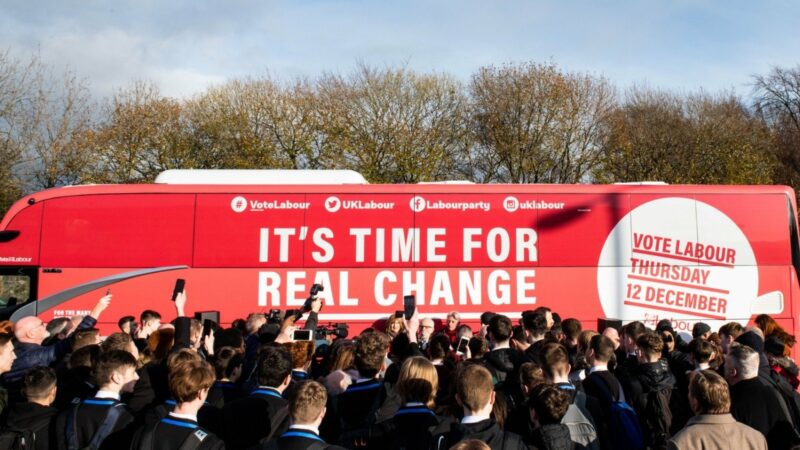
A few months ago, I wrote in LabourList that Labour should learn a lesson in left populism from Jean-Luc Mélenchon, and embrace the elements of Corbynism which were most defined by their anti-establishment instincts. In articulating a progressive conception of the people against a political elite intent on eliminating the prospect of working-class politics, I claimed that it was Labour – not the Conservatives – that could capture the discontent of Brexit and transform that into election victory.
This has not aged well. Mélenchon himself has opted to reflect on our defeat in the December snap election by blaming “networks of influence from Likud” and Jeremy Corbyn for being too apologetic over anti-semitism – sound familiar? And it is Boris Johnson’s Conservatives that have, with a renewed sense of purpose, forged a majority government out of the Brexit crisis. The Conservative Party have swept traditional working-class communities, once seen as immovably Labour, and seems set to make do on the refrain of their campaign and ‘get Brexit done’.
This has understandably unnerved those in Labour who see this defeat for what it is – an existential challenge to the ability of the party to justify its own existence, and the challenge for the next parliament will be renewing our ability to answer that question. For those of us on the left who nonetheless feel a profound sense of pride towards the ambition and hope that the policies of Corbyn’s leadership inspired in the party membership – and are buoyed by the consensus that every serious leadership challenge must keep to the development of this left-wing programme – it remains incumbent on us not to be complacent about the extent to which we have “won the argument” among the party membership.
The rhetorical refrain of Corbynism over the past few years has been our fundamental opposition to neoliberalism – where a decade of elites have determined to limit the extent to which parties can challenge the status-quo, and instead be appropriately insulated from democratic pressures to govern as our superiors. It was the job of the left to rejuvenate and expand the democratic sphere. In the crisis of neoliberalism, when the traditional parties of government were most paralysed and fearful of the new populist moment, it was incumbent on the radical outsiders to equip the centre-left parties of neoliberalism with the right tools for the moment.
In a country where the political right have not simply caught up, but vastly overtaken the left in their understanding of the populist moment, it is simply not enough to continue with our familiar refrain against neoliberalism. In this snap election, it was the Conservative Party that ran as the party of shaking up a political elite who had spent two years abusing the hung parliament to ensure that Britain couldn’t leave the EU. The widely-feared ‘parliament versus people’ election happened and, much to Labour’s shame, the win for ‘the people’ was our worst defeat since 1935.
This election was typical of the new populist moment, as the swing voters of neoliberalism – the aspirational homeowners who Thatcher brought into an expanded middle class – were not the decisive bloc. Instead, it was the left-behind working class community in the North and the Midlands. This is not a one-off election defeat, but a reorientation of Britain’s new political landscape, and a firm rupture from the neoliberal model of election victory.
As we enter this new political era, and having captured the political moment in his favour, Boris Johnson will now spend the next five years in office building towards his 2001 – his quiet landslide. The decisive factor in the next election will be whether these new Conservative seats reward Boris Johnson with the vote of confidence that their communities so starkly awarded him this year.
A new enemy requires a new language – the Labour Party cannot afford to reheat the Corbynite refrain for the next parliament. If the Conservative Party wants to retain its new electoral coalition, they will have the incentive to end neoliberalism for us.



More from LabourList
Humza Yousaf woes deepen as Labour plans no-confidence vote in government
‘History and poll leads suggest Labour can be bolder, even if it costs some votes’
Labour warned ‘ethical foreign policy’ inevitably sparks charge of ‘hypocrisy’